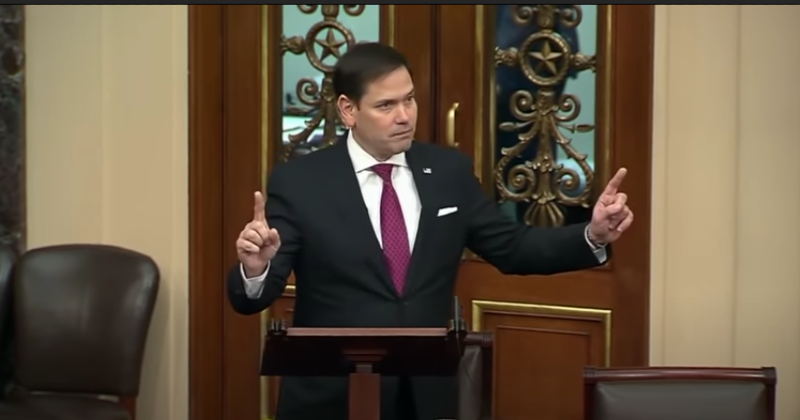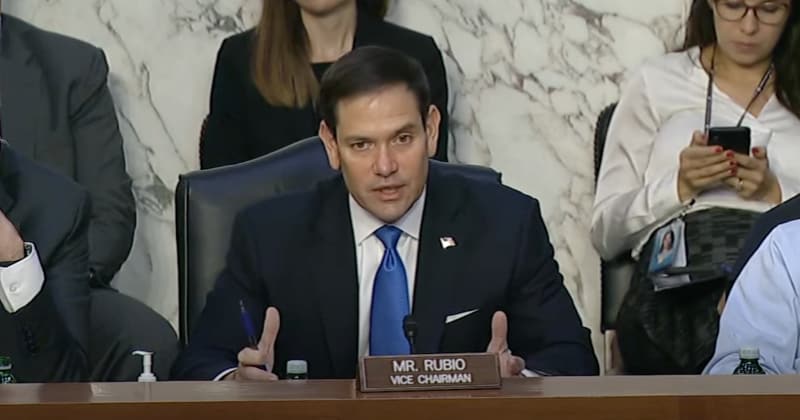Last week, U.S. Sen. Marco Rubio, R-Fla., sent letters to the presidents of 26 Florida research colleges and universities urging them to be on guard against efforts by the Chinese Communist Party (CCP) to use research collaboration and education exchange with American academic institutions to advance their malign agenda.
This includes their open intent to develop new technologies to overpower the American military in a future conflict.
Additionally, Rubio sent letters to Gov. Ron DeSantis and leaders in the Florida Legislature commending them for their work to combat CCP espionage and urging them to continue working to ensure Florida universities are prepared to defend against this threat.
Rubio’s letter follows last year’s enactment of two Florida state laws, HB 7017 and HB1523, intended to strengthen security vetting, including for foreign applicants seeking Florida-based research positions. In light of the new legislation, Rubio warned that “Beijing has a history of successful adaptation to changing political circumstances, and the CCP will certainly look for ways to circumvent whatever measures we put in place.”
The letter is below.
I write to bring your attention to a thorny issue that threatens to compromise our nation’s security as well as the integrity of the research and development enterprise in Florida. The Chinese Communist Party (CCP) and the government of the People’s Republic of China (PRC), which the CCP controls, are using every available avenue in our open society to covertly advance a malign agenda. Research collaboration and educational exchange are no exception.
The CCP hopes to weaken our economy, society, and democracy. A weak America benefits the CCP’s efforts to dominate the global economy, and it also creates the false impression that the alternative model that the CCP represents is superior to our own. The CCP quietly seeks to acquire cutting-edge U.S. technology and the knowledge that will give birth to the technology of the future. Much of that knowledge is unclassified and resides in our universities. Unclassified does not mean unimportant. The CCP believes that access to such knowledge will accelerate the buildup of the People’s Liberation Army (PLA), the CCP’s armed wing, and propel China’s state-directed economy ahead of the United States and into the technological frontier where leadership of the global economy of the 21st century will be contested. For this reason, we cannot approach academic exchange with institutions or individuals from the PRC with stars in our eyes.
As you are no doubt aware, several cases of the PRC successfully penetrating our research institutions have been uncovered in Florida in recent years. In February 2021, the U.S. Department of Justice indicted a PRC national and former professor at the University of Florida (UF) who concealed his prior affiliations with the PLA in order to receive a U.S. visa. This individual allegedly obtained $1.75 million in federal grant money through fraud, and was participating in a PRC talent program associated with a PRC university that had been blacklisted by the federal government for its ties to the PLA. In January 2020, four PRC nationals who held UF faculty positions either resigned or were terminated on account of undisclosed connections to PRC entities of concern. In December 2019, the Moffitt Cancer Center in Tampa forced out six employees, including its CEO, who had hid their professional and financial links to PRC recruitment programs, including personal bank accounts in China where they had received funds from the PRC.
In 2017, the University of Central Florida (UCF) terminated a professor of electrical engineering who was simultaneously employed by a PRC university linked to the PLA’s nuclear weapons program. During his time at UCF, this PRC national shipped computer devices to China that have dual-use military applications without the proper export licenses. In 2018, another professor of computer and electrical engineering at UCF fled the U.S. when UCF officials discovered that he too was simultaneously employed by a PLA-affiliated university in the PRC. While some of these researchers were PRC citizens working legally in the U.S., others were U.S. citizens who were born and raised here. Scrutiny of individual researchers must be applied equally and across the board without regard for nationality or ethnic background.
China itself is not the problem, much less the Chinese people. The same force that deprives the Chinese people of their freedom is what threatens us: the despotic regime in Beijing. China is anything but a free country, and its institutions, students, and scholars face enormous political pressure to advance the CCP’s goals through their professional activities with international partners. Academic exchange with PRC entities and citizens thus deserves much greater scrutiny than collaboration with other countries. Institutions and individuals that are subject to the demands of a totalitarian regime are simply not comparable to institutions and individuals that enjoy legally protected rights and freedoms. As the CCP’s paramount leader Xi Jinping often says: “The party, the government, the military, civilian [institutions], and the academy; East, West, South, North, and the Center; the party leads everything.”
It is clear we face a problem with the PRC recruiting nontraditional agents, such as academics, residing in Florida and elsewhere in the United States, to help Beijing acquire critical information and key technologies that have military applications. Institutional links between universities in Florida and the PRC, including joint research programs, should be discouraged, and permitted only if and when conditions allow for due diligence to be performed to ensure that such academic collaboration is not being misappropriated for military purposes in the PRC. Florida’s recent enactment of two state laws, HB 7017 and HB 1523, intended to strengthen security vetting, including for foreign applicants seeking Florida-based research positions, is an excellent step forward, but may prompt a recalibration of the PRC’s collection efforts in the state. Beijing has a history of successful adaptation to changing political circumstances, and the CCP will certainly look for ways to circumvent whatever measures that we put in place. We must aim to stay a step ahead of their efforts to outwit us.
For the reasons outlined above, I respectfully urge you to carefully review and monitor existing research relationships with the PRC under your purview, and to keep these concerns in mind as you consider any future collaboration and the national security implications thereof.
Thank you for your time and attention to this important matter.
















